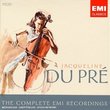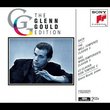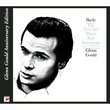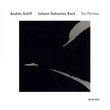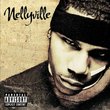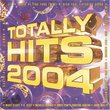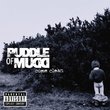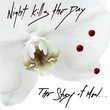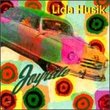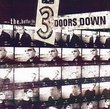| All Artists: J.S. Bach, Gould Title: Glenn Gould Edition - Bach: Partitas, Preludes & Fugues Members Wishing: 1 Total Copies: 0 Label: Sony Release Date: 1/11/1994 Genre: Classical Styles: Forms & Genres, Suites, Historical Periods, Baroque (c.1600-1750), Modern, 20th, & 21st Century Number of Discs: 2 SwapaCD Credits: 2 UPC: 074645259727 |
Search - J.S. Bach, Gould :: Glenn Gould Edition - Bach: Partitas, Preludes & Fugues
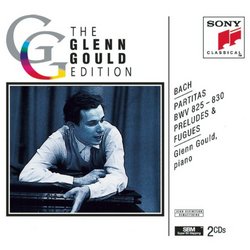 | J.S. Bach, Gould Glenn Gould Edition - Bach: Partitas, Preludes & Fugues Genre: Classical
|
Larger Image |
CD DetailsSimilar CDsSimilarly Requested CDs
|
CD ReviewsSimply The Best A. Michaelson | Bay Area, CA | 08/06/2001 (5 out of 5 stars) "I'm not a hardcore Glenn Gould fan, but when it comes to Bach's keyboard works, it is my opinion that nobody comes close to this level of playing or understanding of the great master of composers. These six partitas are the best dance suites that Bach ever wrote. In fact, Bach himself knew that they were special, thus he payed to have them published in his lifetime(sadly most of Bach's works were never published in his lifetime). I must say that of all the recordings of them that I've heard, none can compare to these. The next best would probably be Rosalyn Turek's, who had a deep insight into the pieces, but failed to play them without romanticizing them. Gould's amazing ability lays in the fact that he is able to interepret baroque music in a baroque style yet still add emotion, character, and personality to the pieces. Very few are able to do this without having the pieces end up being a romanticized debacle. This two disc set however, not only includes the complete keyboard partitas, but it also includes many preludes and fugues, which are also masterfully played by Gould. The only flaw I can find with this disc is Gould's famous humming, which I'm not too fond of, but you get used to it after a while. Get this disk, because it is essential Bach." Bach + Gould = The Best Popescu Lucian | 12/10/2001 (5 out of 5 stars) "Glenn Gould was the best interpreter of Bach's keyboard works ever. Gould was able to bring out both the logical and the romantic elements of Bach's compositions. This CD has, what I think, is the best example of Glenn Gould's take on Bach ... Gould's soaring rendition of JS Bach's Partita No.1 in B-Flat, BWV 825: III. Corrente (you can hear a sample on Amazon). I've heard that hundreds of times, but it is still breathtaking for me to hear it every time I hear it again." Excellent Popescu Lucian | Bucharest, Romania | 04/27/2004 (5 out of 5 stars) "These are (after Art of Fugue) by far the finest, most profound, least repetitive works for solo keyboard (piano, harpsichord, organ) ever written. Even if all of Bach's other works were lost, he would still clearly classify as world's greatest composer. Those who question my superlative accounts on these works should listen to the concluding movement (Gigue) in BWV 830 partita. Such beauty is indescribable...Gould's interpretation is one among the very few where the piano doesn't muddle the counterpoint. His tempi are thoughtfully chosen, although (compared to Leonhardt landmark harpsichord performance) they tend to be somewhat fast. The clarity of counterpoint is crisp and the love for performing properly is unquestionable. There simply is no comparison with his "pianistic" contemporaries (who quite litterally were careless on how Bach should OBJECTIVELY sound like)."
|

 Track Listings (33) - Disc #1
Track Listings (33) - Disc #1